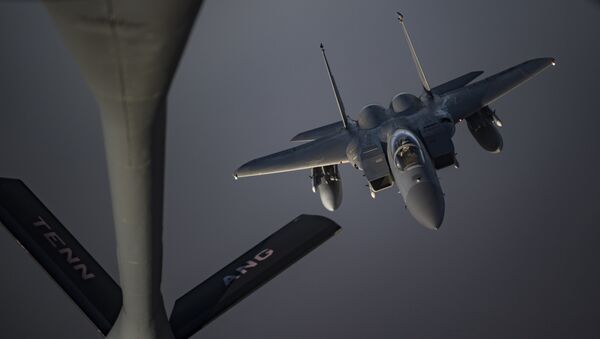The US defence company Raytheon is currently working on a new warning system that tells pilots when their planes have been hacked, Defense One reported on Friday.
Technology is now being tested in a simulator set up in Arlington, Virginia, where a group of engineers from Raytheon is trying to create a Cyber Anomaly Detection system that would notify pilots about potential attacks. The team argues that this self-funded project started three years ago, when an unidentified customer complained about possible vulnerabilities that aviation platforms, including commercial aircraft and missiles, could be susceptible to.
“Basically, we’re trying to give the pilot the information about what’s happening internally on his aircraft in real time”, says Amanda Buchanan a leading engineer in Raytheon’s project. “We’re telling him what’s going on and allowing him to make decisions about what he needs to do to correct the problems”.
The engineers also mentioned that while the system still cannot fight possible hacker intrusions or prevent a plane from potentially falling if its engines are switched off, it could possibly help detect attacks and win pilots some time to repair damage. In an interview with Defense One, Raytheon’s cyber-resiliency product manager, Greg Fry, insisted that the so-called “serial data bus” communication system, which has been used in many US military planes since the 1970s, still has not been updated for security, prompting fears of cyber vulnerabilities in the US Air Force.
“You GPS talks on it, your fuel valve switches are on it, your autopilot is on it and other avionics systems all communicate over this bus”, Fry said. “What we found is as technology has increased and more and more [commercial] products are put in aircraft, there’s more of an attack surface for cyber threats to go onto the platform”.
The US military has begun to increasingly talk about possible cyber vulnerabilities in its Air Force systems following the detection of several errors in F-15 Strike Eagle fighter jets during a cybersecurity conference in Nevada this August. The Pentagon has previously also warned about the dangers of collaborating with Chinese firms and organisations linked to the People’s Liberation Army in the area of sensitive military technologies in order to avoid compromising the cyber security of US weaponry, ranging from cruise missiles to fighter jets.



